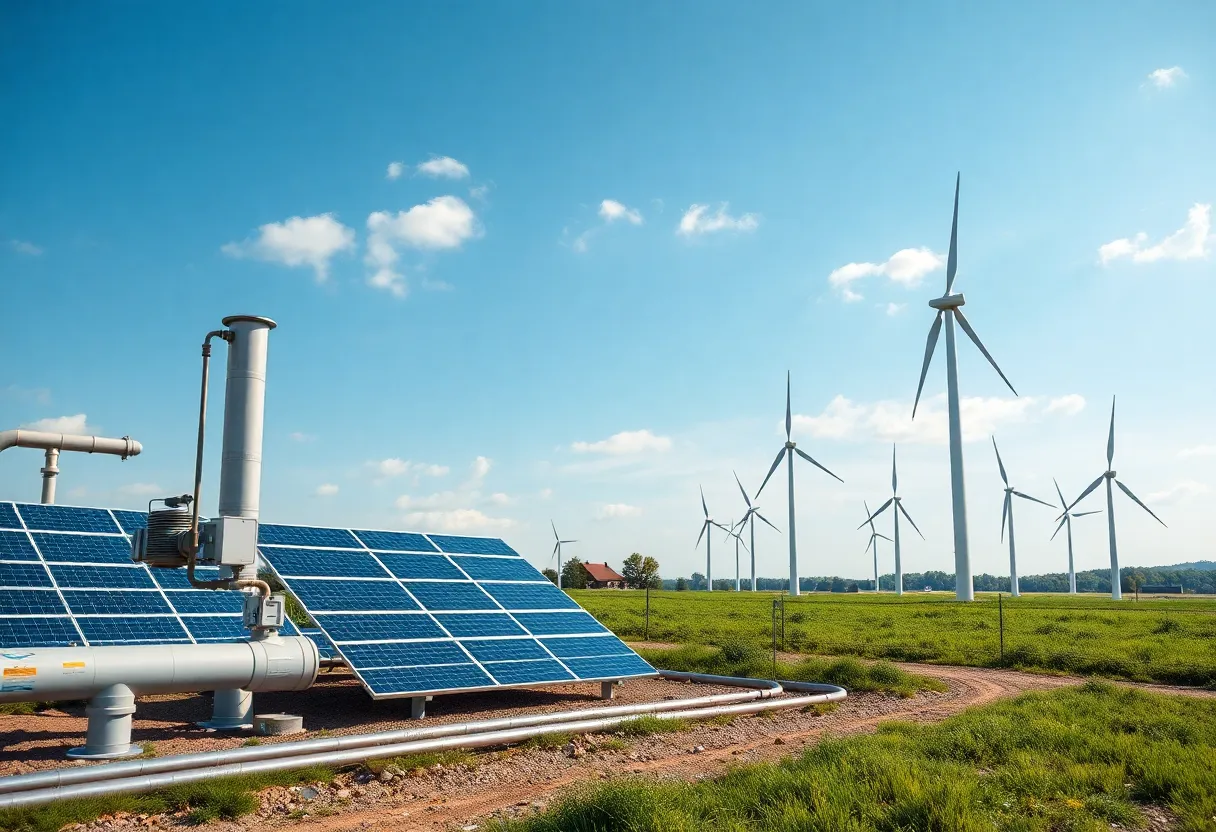News Summary
Rhode Island is evaluating its dependence on natural gas as a committee explores alternatives to reduce fossil fuel reliance. The effort is part of the state’s Act on Climate, requiring significant emissions reductions. Discussions have emerged around renewable natural gas (RNG), but concerns about high production costs and limited availability pose challenges. The state aims for a 45% reduction in emissions by 2030 and net-zero by 2050, focusing on a strategic transition that addresses consumer protection and energy efficiency.
Rhode Island is grappling with the viability of transitioning away from natural gas as a state committee examines alternative solutions aimed at reducing reliance on fossil fuels. This initiative is being driven by the state’s Act on Climate, which mandates significant reductions in greenhouse gas emissions. The committee’s recent discussions have highlighted the challenges associated with renewable natural gas (RNG), a key component in the proposed transition strategy.
Committee members have raised doubts about RNG’s feasibility, pointing to its high production costs and limited availability as major obstacles. As derived from biological sources, RNG is produced from the decomposition of organic matter, including food waste and animal manure. However, industry stakeholders note that the expense associated with producing RNG is significantly higher compared to that of traditional fossil fuel gas.
Michael Walsh from Groundwork Data presented findings indicating that the RNG pathway will struggle to provide reliable energy for Rhode Island’s needs. A report from Nicholas Vaz, the state’s special assistant attorney general, underlines this concern, revealing that RNG could feasibly serve only about 17% of the state’s households by the year 2050. Currently, more than half of Rhode Island’s households depend on natural gas, underscoring the challenge of reducing dependence on this energy source.
The Rhode Island Public Utilities Commission (PUC) established the stakeholder committee as part of a broader investigation into the gas distribution sector’s future, with ambitious goals to achieve a 45% reduction in emissions by 2030, an 80% cut by 2040, and attaining net-zero emissions by 2050. Currently, the natural gas sector is responsible for nearly 40% of the state’s total emissions, highlighting the urgency of finding alternative sustainable energy solutions.
As the committee deliberates, stakeholders emphasize the need for practical options that consider both funding mechanisms and consumer protection throughout the transition. They have advocated for a shift toward electrification and enhancing energy efficiency, drawing lessons from Massachusetts, which has made notable advancements in reducing its reliance on natural gas. Massachusetts had once proposed a plan focused on RNG, but this was ultimately rejected due to significant cost and practicality issues.
In response to the challenges posed by transitioning away from natural gas, Rhode Island is contemplating pilot programs aimed at strategically decommissioning the existing natural gas infrastructure. As the PUC faces increasing pressure to formulate a viable plan to meet emission reduction targets while simultaneously safeguarding consumer interests, innovative funding structures are being considered. Among these are clean heat standards and cap-and-invest approaches, similar to those adopted in other states.
Concerns have been articulated regarding the potential impact on low-income households during this transition. To address equity issues, suggestions have been made to cap electricity costs at a manageable percentage of income for vulnerable customers and to create assistance programs designed to facilitate necessary energy efficiency upgrades.
The stakeholder committee is working diligently to compile its findings and recommendations regarding the future of gas in Rhode Island. A final report is expected to be submitted to the PUC by the end of 2024, providing guidance on how the state can effectively navigate the challenges of reducing its dependence on natural gas while ensuring an equitable energy transition for all residents.
Deeper Dive: News & Info About This Topic
- Providence Journal: High Electric Bill in Rhode Island
- Wikipedia: Electricity in the United States
- Utility Dive: Rhode Island Power Plant Issues
- Google Search: Rhode Island energy solutions
- Valley Breeze: RI Energy Rates Update
- Encyclopedia Britannica: Renewable Energy
- Providence Journal: Energy Price Legislation in RI
- Google News: Rhode Island utility consumer protection
- Rhode Island Current: Lawmakers and Energy Bills
- Google Scholar: Rhode Island energy transition

Author: STAFF HERE PROVIDENCE WRITER
The PROVIDENCE STAFF WRITER represents the experienced team at HEREProvidence.com, your go-to source for actionable local news and information in Providence, Providence County, and beyond. Specializing in "news you can use," we cover essential topics like product reviews for personal and business needs, local business directories, politics, real estate trends, neighborhood insights, and state news affecting the area—with deep expertise drawn from years of dedicated reporting and strong community input, including local press releases and business updates. We deliver top reporting on high-value events such as WaterFire, Rhode Island International Film Festival, and Rhode Island Comic Con. Our coverage extends to key organizations like the Greater Providence Chamber of Commerce and Providence Warwick Convention & Visitors Bureau, plus leading businesses in finance and manufacturing that power the local economy such as Citizens Financial Group and Textron. As part of the broader HERE network, we provide comprehensive, credible insights into Rhode Island's dynamic landscape.





